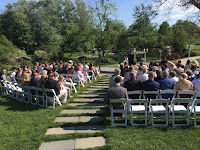I’ve started reading a book by Father Richard Rohr called The Universal Christ: How a Forgotten Reality Can Change Everything We See, Hope For, and Believe. What he’s talking about can boil down to the following statement:
Christ is not Jesus’s last name.
Christ is who Jesus was from the beginning.
Now, we may think we already know that. After all various scriptures speak of Jesus existing from “the Beginning”—John 1:1-18; Colossians 1:15-20; Ephesians 1:13-14—but Rohr challenges us to think about the implications of this. Do we really live like Jesus is Christ (Messiah, liberating King of the Universe, savior of the world) or do we reduce him to the role of Personal Savior, who assures me that I am going to heaven when I die, likes the small group of people I like and promotes their success, and pretty much condemns the rest to hell?
“Christianity has become clannish to put it mildly,” says Rohr. “But it need not remain there. The full Christian leap of faith is trusting that Jesus together with Christ gave us one human but fully accurate window into the Eternal Now that we call God (John 8:58, Colossians 1:15, Hebrews 1:3, 2 Peter 3:8). This is a leap of faith that many believe they have made when they say, “Jesus is God!” But strictly speaking, those words are not theologically correct:
· Jesus is a Third Someone, not just God and not just man—but God and human together.
Rohr continues, “A merely personal God becomes tribal and sentimental, and a merely universal God never leaves the realm of abstract theory and philosophical principles. But when we learn to put them together, Jesus and Christ give us a God who is both personal and universal”—The Universal Christ, Chapter 1, p. 19.
I think, for most of us reading this article, we’ve grown up in churches that focus much more the personal dimension of Jesus, so that’s where we’re comfortable. Talk of a universal Christ raises red flags for some. It can begin to sound like pantheism, which means, “God is all things.” So, the bird, or the rock, or the tree literally is God. That’s not what Rohr is describing, however. He is talking about panentheism; which is a similar word, differing by only a tiny syllable; but that little “en” makes a big difference.
Panentheism means that “God is all things”, which means that God is not the rock, or the bird, or the tree—but God (Christ) is in all these things, and in everything else that God has created. So, Christ can be seen in all of creation—and the ultimate revelation of Christ is Jesus. This idea is the bedrock of the theology the Apostle Paul advocates so strongly in his writing. Rohr points out that Paul uses the phrase en Cristo, or “in Christ,” 164 times—which is more than any other phrase he uses in his letters.
in
According to Rohr, “En Cristo seems to be Paul’s code word for the gracious, participatory experience of salvation, the path that he so urgently wanted to share with the world. In Paul’s mind, we’re all living en Cristo; it’s only by our own negative choice that we remove ourselves from God”—The Universal Christ, Chapter 3, p. 43.
That last sentence from the quote above sounds similar to C.S. Lewis, who wrote in The Problem of Pain that, “The gates of hell are locked from the inside.”
What might it look like to see Christ in all things? I think I experienced this recently, when my family attended the wedding of my niece (by marriage) Nancy Leigh Gates to Louis Martinelli. We had a beautiful weekend celebrating the joining of these two lives as one. We didn’t go to church last Sunday as we normally would. Nevertheless, I feel as though the weekend was thoroughly God-soaked. It was hard not to see God in what was taking place.
To begin with, I saw God in the circle of life playing out. My wife was a junior bridesmaid in the marriage of Nancy Leigh’s parents, her brother John and his wife Kathy, nearly 43 years earlier, and Nancy Leigh was a junior bridesmaid in our wedding nearly 16 years ago. So, it was a real joy for our family to not only attend, but to be participants. Brady and Becca were both in the wedding party; Laurie was the officiant; and they even asked me to read Scripture. It was truly a family affair.
I also saw God in bedrest, ginger-root tea, and antibiotics. Our family battled sickness (allergies/virus) during the week leading up to the wedding and it was touch-and-go for a while whether Laurie and I would have adequate voice to do our speaking parts. But God was faithful; when Saturday came, both of us were able to do what we needed to do.
As one might expect, I saw God in the wedding ceremony. This young couple clearly made an intentional effort to invite God to join them at the altar. During the ceremony, I read four Scriptures that spoke of love, including the story of Ruth and Naomi. Laurie's homily focused on the love that Ruth showed for her mother-in-law, and the love she found from an unknown God as she journeyed far from her homeland to fulfill her promise, and how Ruth ultimately became the great-grandmother of Israel’s greatest King (David). God is found in God’s Word. As Ruth gleaned from the fields long ago, so the ancient stories of Scripture have wisdom for us to glean today.
 I also saw God in the casually elegant venue that was the perfect place for a young couple to have a wedding. It was a great setting for both the ceremony and reception. God was also there in the natural beauty nestled right in the suburbs of Philadelphia—not far from the “Blue Route”. There was a stream with fountains, which activated when the couple kissed—a tradition they borrowed from Disney I believe. Beautiful flowers adorned the grounds, and a couple of huge trees grew on the property, and from one of those massive limbs hung a rope swing. I found myself wondering how old those trees were—and the stories they could tell if they could speak.
I also saw God in the casually elegant venue that was the perfect place for a young couple to have a wedding. It was a great setting for both the ceremony and reception. God was also there in the natural beauty nestled right in the suburbs of Philadelphia—not far from the “Blue Route”. There was a stream with fountains, which activated when the couple kissed—a tradition they borrowed from Disney I believe. Beautiful flowers adorned the grounds, and a couple of huge trees grew on the property, and from one of those massive limbs hung a rope swing. I found myself wondering how old those trees were—and the stories they could tell if they could speak.
Indeed, God was there in the faces we encountered, and the spaces and places we visited last weekend. We just needed eyes that saw...
I’m sure that I was a bit predisposed to see Christ in all things this weekend. I was after all reading a book about seeing Christ in all things, and a Christian wedding is the probably the kind of event that naturally predisposes one to “seeing God” more readily than some other events. Nevertheless, I really do believe that in this world, as the late Eugene Petersen put it in one of his book titles, “Christ Plays in 10,000 Places”. The question is, are our senses tuned to see, hear, smell, touch, and taste the Christ in the faces we encounter, and in the spaces and places we find ourselves? Or are we so conditioned to only look for God in certain places (e.g., in church on Sunday morning) that we miss so much of what God intends for us to see?
Church as we know it seems to be dying. Young people don’t seem all that interested in the version of Christ we’ve been presenting. The statistics speak for themselves. No need to rehash them here. Congregations are greying; pews are emptying. Sunday Schools are sparsely attended.
For many people it seems Christ plays anywhere but “in church” on Sunday morning.
According to Rohr, “Right now, perhaps more than ever, we need a God as big as the still-expanding universe, or educated people will continue to think of God as a mere add-on to a world that’s already awesome, beautiful, and worthy of praise in itself. If Jesus is not also presented as Christ, I predict more and more people will not so much actively rebel against Christianity as just gradually lose interest—Universal Christ, Chapter 1, p. 17.
So, if Rohr is right, maybe we need to give this Universal Christ some serious thought. While I don’t necessarily embrace Rohr’s theology completely, I do agree with him that we need to present Jesus Christ as both personal and universal savior. Focusing as much as we have on personal salvation, in my humble opinion, has not done the Church any favors.
I don’t think “going to heaven when we die” is enough to make young people embrace Jesus. They need a larger vision of salvation that impacts their life and gives them hope now—as well as a promise forlater. They need both Jesus and Christ.
The future of “the Church”, which I’ve been part of my whole life, is unclear, and I find that unsettling. What kind of church will be left when my kids are adults? How about when their children are born? I honestly don’t know. While I’m convinced “the Church” will endure in some form, I honestly don’t know what it will look like. To recognize it when we, or our children, see it will likely require us to learn to see Christ playing in places where we didn’t expect to find him. Confining God to the crumbling conventional church structure simply isn’t going to cut it anymore. (Not that Christ isn’t there… but that he is found in so many other places as well.) The urgency to learn to see “Christ in all” has never been greater. I hope our eyes can adjust before it’s too late… The lyric from the song, Glory is Here, contains our prayer request: Lord, “help me to see that you’re all around me". Even better, I hope the next generation of Christ-followers can learn to see Christ where we couldn’t (or wouldn’t)—and perhaps teach us to see what they see.
[1]This description makes me think of Jesus as the humanavatarof the Christ (in whom the fullness of God was pleased to dwell—Colossians 1:19) making God more accessible/understandable to us as human beings.













